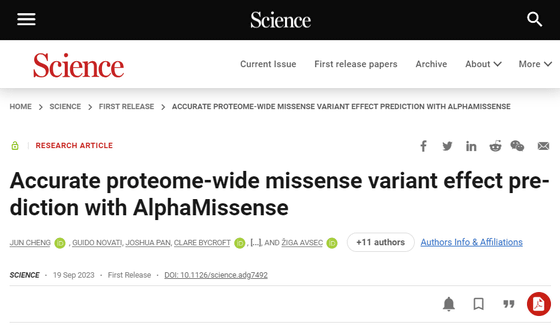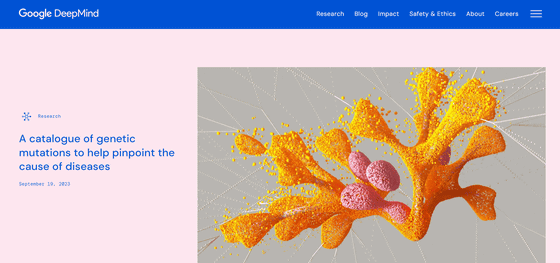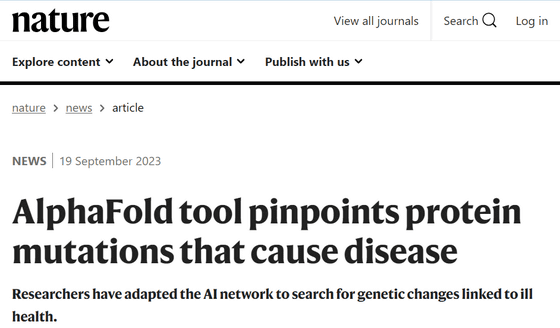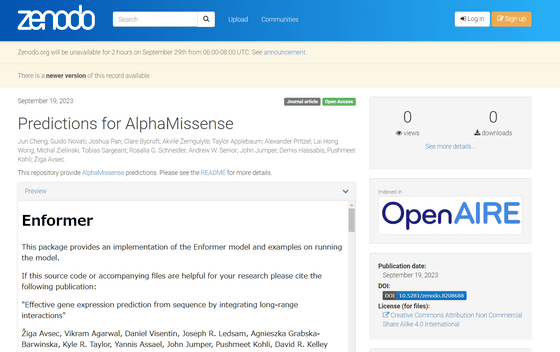Google DeepMind announces AI ``AlphaMissense'', which may help predict which genetic mutations are harmful and identify the cause of genetic diseases

Accurate proteome-wide missense variant effect prediction with AlphaMissense | Science
https://www.science.org/doi/10.1126/science.adg7492

A catalog of genetic mutations to help pinpoint the cause of diseases
https://www.deepmind.com/blog/alphamissense-catalogue-of-genetic-mutations-to-help-pinpoint-the-cause-of-diseases

AlphaFold tool pinpoints protein mutations that cause disease
https://www.nature.com/articles/d41586-023-02943-5

Genes, which are the blueprints for proteins, are described by the base sequence of DNA, and mutations in this description result in mutations in the amino acid sequence, resulting in abnormalities in the functions of the expressed proteins, which can cause diseases. It will become. For example, ' sickle cell disease ' is a disease in which red blood cells become sickle-shaped, reducing their ability to transport oxygen and causing frequent anemia. It occurs when an abnormality occurs.

by Dr Graham Beards
Mutations such as sickle cell disease, in which the amino acid sequence changes or an abnormal protein is produced due to changes or substitutions in the DNA base sequence, are called 'missense mutations.' There are approximately 71 million types of missense mutations that can occur in the human genome. Most of these have no effect on health, but a small number can be a factor in genetic diseases such as sickle cell disease.
Google DeepMind's AlphaMissense is an AI tool that analyzes missense mutations and predicts their likelihood of causing disease. AlphaMissense is designed based on AlphaFold, a protein structure calculation AI, and seems to incorporate a neural network called a ``protein language model'' trained with millions of protein sequences instead of words.
According to Google DeepMind, AlphaMissense can classify 89% of 71 million types of missense mutations. In contrast, only 0.1% of missense mutations have been confirmed by human experts to be malignant or benign.

However, Jana Blomberg, a bioinformatician at Emory University, told the scientific journal Nature: 'Before AlphaMissense can be put into practical use, it needs to be rigorously evaluated using good performance metrics. It seems like my worst nightmare for AI predictions to be treated as if they were real without any evaluation by AI tools like AlphaMissense.'' That's what I mean.
The prediction results by AlphaMissense are published below.
Predictions for AlphaMissense | Zenodo
https://zenodo.org/record/8208688

Related Posts:







